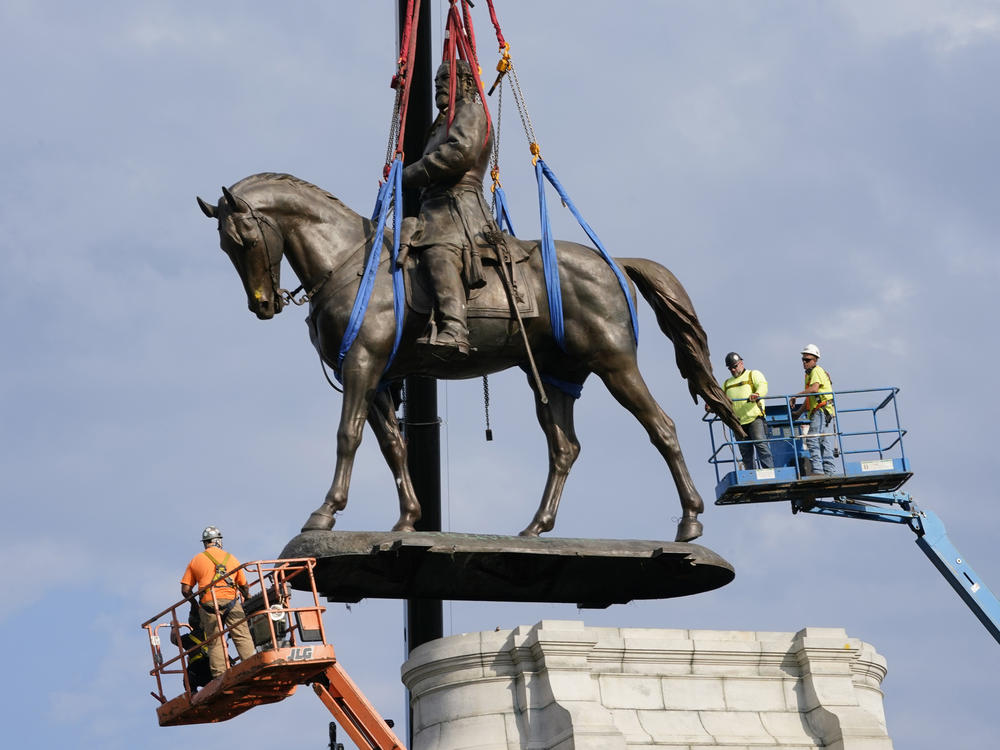Section Branding
Header Content
Richmond's Robert E. Lee statue will move to the city's Black History Museum
Primary Content
The massive statue of Confederate Gen. Robert E. Lee in Richmond, Va., taken down in September, will be moved to the city's Black History Museum, Gov. Ralph Northam and Mayor Levar Stoney announced Thursday.
The Black History Museum and Cultural Center of Virginia will take the 21-foot-tall statue of Lee and the pedestal it stood on, which became a rallying point for protests against police brutality in the summer of 2020. Eight other Confederate statues that were removed around the city will also be moved to the museum.
"Symbols matter, and for too long, Virginia's most prominent symbols celebrated our country's tragic division and the side that fought to keep alive the institution of slavery by any means possible," Northam said in a statement provided to NPR.
"Now it will be up to our thoughtful museums, informed by the people of Virginia, to determine the future of these artifacts, including the base of the Lee Monument which has taken on special significance as protest art."
The museum will partner with The Valentine, the city's oldest museum, to get input from the community on how the statues should be displayed. Before any of that can happen, however, the plan still needs approval from the city council.
The decision on what to do with its statues is part of a larger nationwide conversation on removing, replacing and renaming Confederate symbols — and questioning what remembering history looks like in a public space.
Richmond was capital of the Confederacy for most of the Civil War, from 1861 until 1865. And Virginia once had the most Confederate statues in the country.
In Charlottesville, Va., the city council recently decided its statue of Lee — the proposed removal of which helped spark the deadly Unite the Right rally in 2017 — will be melted down and turned into a public art piece, a project that will be led by the Jefferson School African American Heritage Center in town.
Andrea Douglas, the center's executive director, told NPR she hopes Charlottesville's plans will help guide what other cities do with their Confederate monuments.
"Can we create something that defines the community in the 21st century? What does Charlottesville want to be? We describe ourselves as a city that believes in equity, that believes in social justice, so what does that look like in a public space?" Douglas asked.
"This is really not about erasing history. It's about taking history and moving forward," she said.
Copyright 2021 NPR. To see more, visit https://www.npr.org.

